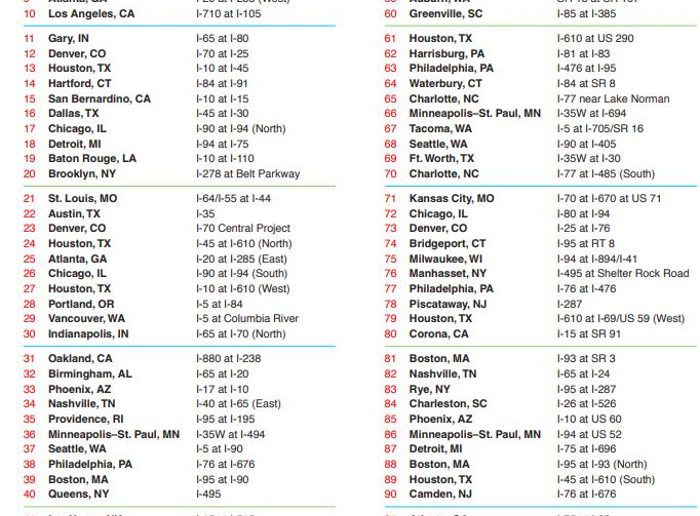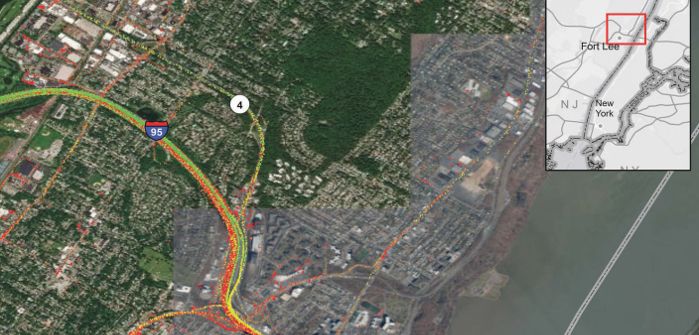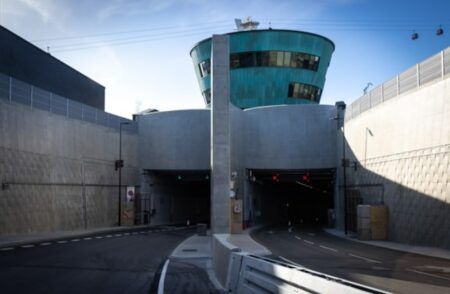The USA’s freight haulage industry research organization, the American Transportation Research Institute (ATRI), has released its latest annual list highlighting the country’s most congested bottlenecks for trucks.
ATRI’s 2019 Top Truck Bottleneck List assesses the level of truck-oriented congestion at 300 locations on the national highway system. The analysis, based on truck GPS data from nearly one million heavy duty trucks uses several customized software applications and analysis methods, along with terabytes of data from trucking operations to produce a congestion impact ranking for each location.
The study uses detailed position and speed data derived from wireless onboard telematics communications systems used by the trucking industry. Truck speeds on each of the 300 segments are collected and assigned to one of 24 one-hour time slots and compared with the presumed average ‘Free Flow Speed’ of 55mph (88km/h).
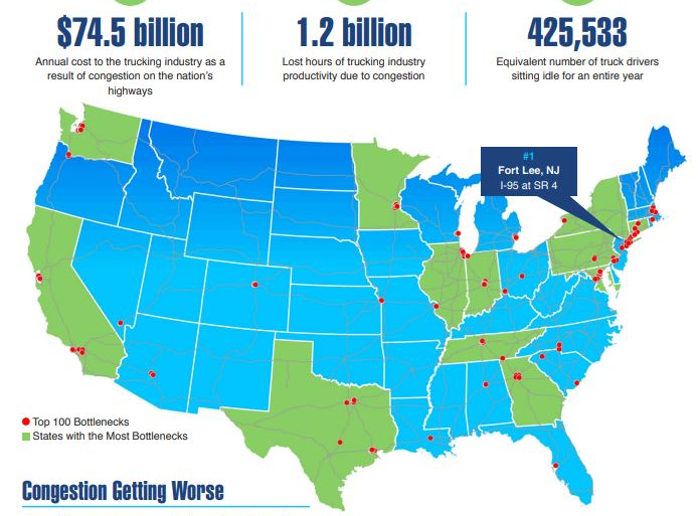 ATRI’s truck GPS data is used to support the US Department of Transportation’s (USDOT) freight mobility initiatives. The locations detailed in this latest ATRI list represent the top 100 congested locations.
ATRI’s truck GPS data is used to support the US Department of Transportation’s (USDOT) freight mobility initiatives. The locations detailed in this latest ATRI list represent the top 100 congested locations.
For the first time since 2014, the intersection of I-95 and SR 4 in Fort Lee, New Jersey, is back on top as the number one freight bottleneck in the country. The rest of the Top 10 includes:
- Atlanta: I-285 at I-85 (North);
- Atlanta: I-75 at I-285 (North);
- Los Angeles: SR 60 at SR 57;
- Houston: I-45 at I-69/US 59;
- Cincinnati: I-71 at I-75;
- Chicago: I-290 at I-90/I-94;
- Nashville: I-24/I-40 at I-440 (East);
- Atlanta: I-20 at I-285 (West);
- Los Angeles: I-710 at I-105.
ATRI’s analysis found that year-over-year truck speeds across the top 10 locations dropped by an average of nearly 9% as congestion worsened along the nation’s busiest freight roadways. Texas (13) and California (7) were the states with the most truck bottlenecks.
“ATRI’s research shows us where the worst pain points are, but they are far from the only ones. This report should be a wake-up call for elected leaders at all levels of government that we must act quickly to address our increasingly congested highway system,” said Chris Spear, president and CEO of the American Trucking Associations (ATA) motor carrier trade federation.
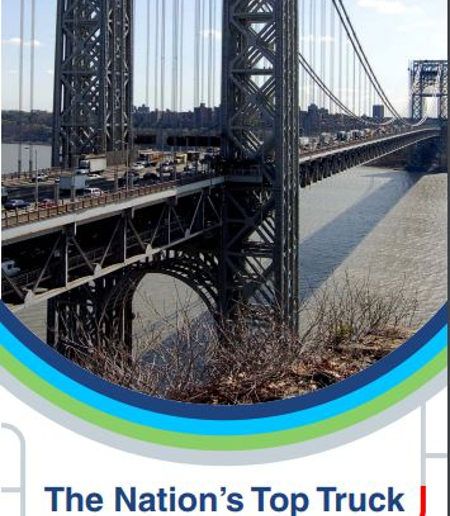 “Without meaningful investment in our nation’s infrastructure, carriers will continue to endure billions of dollars in congestion-related costs, which results in a self-inflicted drag on our economy.”
“Without meaningful investment in our nation’s infrastructure, carriers will continue to endure billions of dollars in congestion-related costs, which results in a self-inflicted drag on our economy.”
Rich McArdle, president of UPS Freight, commented, “Congestion is a persistent issue for our industry and our company specifically. For UPS, if all of our vehicles are delayed just five minutes a day, every day, it costs our company US$114m a year. In order to combat congestion, many companies must plan operational redundancies to meet their customer needs. Using data like ATRI’s bottleneck report can help both companies and elected officials to make more informed decisions.”
